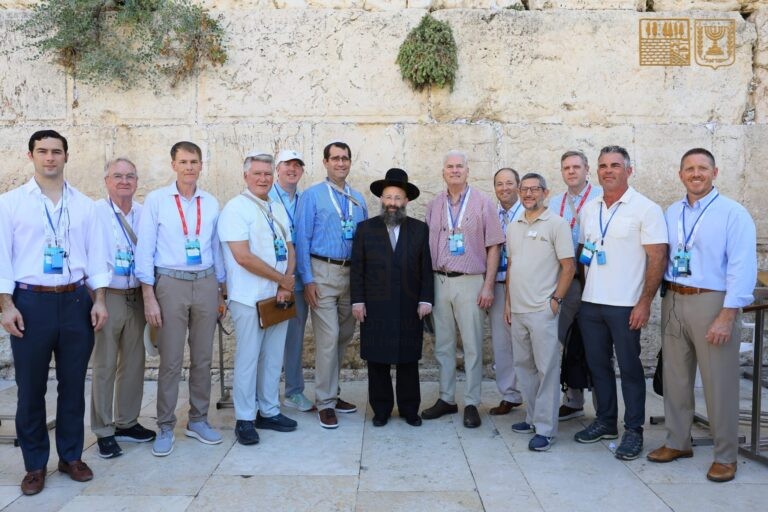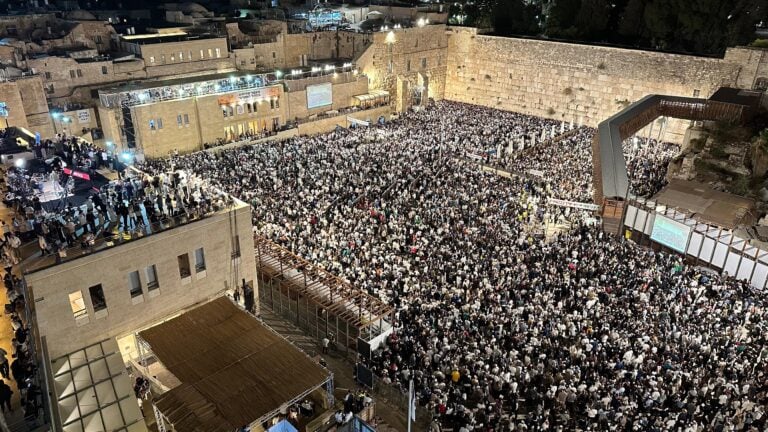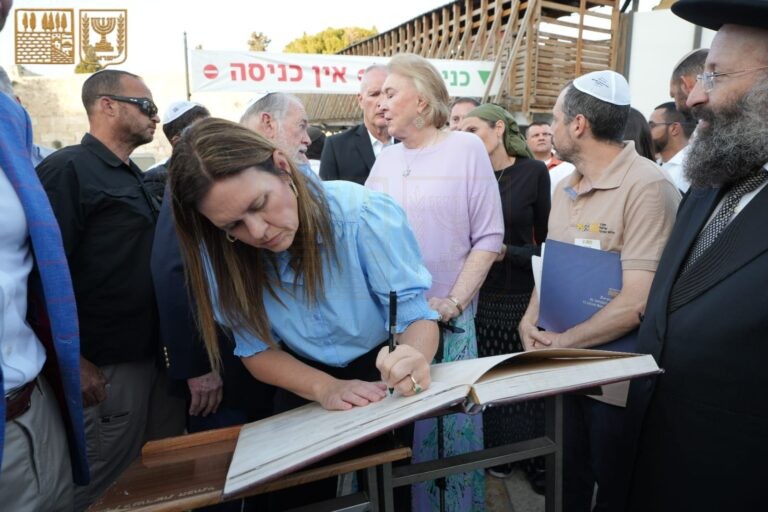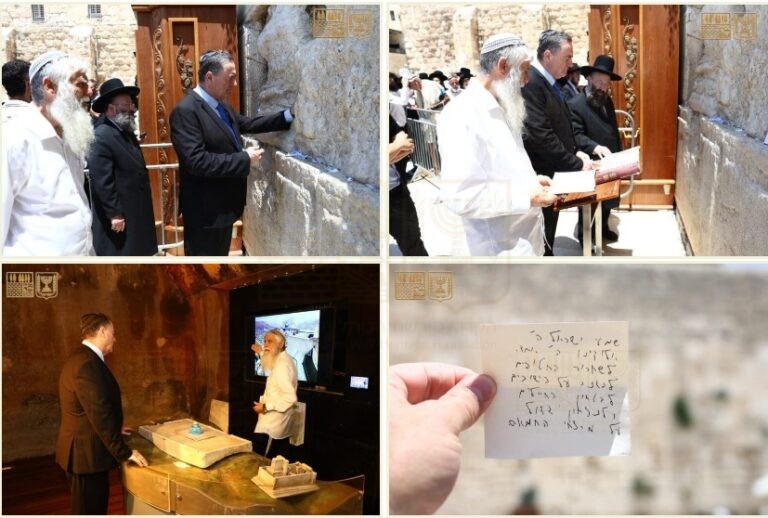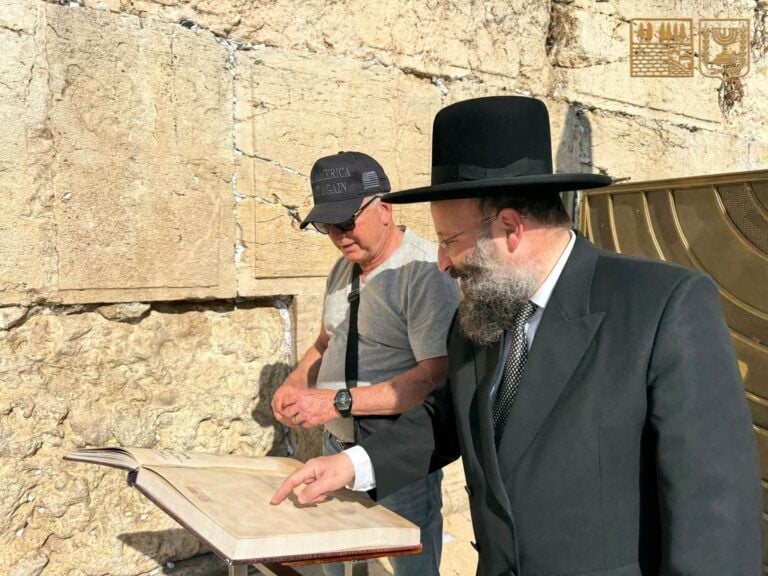Parashat Va’etchanan – 5785
Rabbi Shmuel Rabinowitz Rabbi of the Western Wall and Holy Sites
Moses pleads with G-d: I want to enter the Land of Israel.
“And I pleaded with the Lord… Let me please cross over and see the good land that is across the Jordan, this good mountain and the Lebanon.”
(Deuteronomy 3:23–25)
Moses knows that he has been decreed not to enter the Land due to the sin of the “Waters of Merivah” (when he was commanded to speak to the rock to bring forth water miraculously, but instead he struck it), yet he does not give up.
In his plea, Moses emphasizes that he wishes to cross the Jordan to experience the good land — a land flowing with milk and honey, full of G-d’s blessing — but he also mentions something else:
“This good mountain and the Lebanon.”
(ibid.)
What is this “good mountain” he refers to, and what is “the Lebanon”? And more than that: since Moses is denied entry to the Land, these too would be beyond his reach. Why, then, does he specify them in addition to the general request to see “the good land across the Jordan”?
Our Sages explained that “this good mountain” refers to Mount Moriah, the Temple Mount, which is inherently good, and “the Lebanon” refers to the Holy Temple, called so because it whitens (purifies) the sins of Israel.
The physical good land we received as a gift from God. In it, we passed through many periods — some better, some worse — and ultimately, after years of pain, war, and hunger, we were exiled from it for a long time until, in our generation, we merited to return with God’s mercy.
But “this good mountain” — the Temple Mount and the Holy Temple — its sanctity never ceased and never will. Even in the days of the Patriarchs — Abraham, Isaac, and Jacob — long before the Temple era, a special holiness rested upon the Temple Mount. Abraham called it “the mountain where God will be seen,” and Jacob saw it as “the gateway to heaven.”
The holiness of the Temple Mount — toward which the eyes of the Jewish people have been turned for two thousand years — has never faded. The same is true for the Western Wall, the dwelling place of the Divine Presence, from which “the Shechinah has never departed,” and never will.
The Kli Yakar (Rabbi Shlomo Ephraim of Luntschitz, 17th century) explains: This is what Moses asked for — even if the gift of the good land is withheld from me, I cannot forgo the spiritual power contained in this good mountain. I do not deserve to be deprived of it. For even when the Jewish people sinned, the holiness of the Temple Mount remained. And throughout the long years of exile, the Western Wall embraced every Jew who came to rest their head on its stones and feel the sanctity of the Divine Presence dwelling there.
To this, God responds:
“It is enough for you.”
(Deuteronomy 3:26)
You, Moses, the man of God, have absorbed enough holiness and spiritual elevation — you need no additional gift.
In these days of consolation, as the Western Wall is filled with Jews of all backgrounds and communities coming to embrace its eternal holiness, how much gratitude we must offer to God for having merited to return to it.
